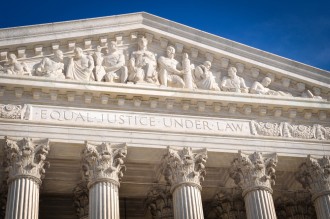December 7, 2015
Federal Circuit Upholds Constitutionality of Post-Issuance Trials
Last week, the Federal Circuit held in MCM Portfolio LLC v. Hewlett-Packard Co.,_____ F.3d _____ (Fed. Cir. 2015) that inter partes review trials do not violate Article III and the Seventh Amendment of the Constitution.
MCM challenged the constitutionality of inter partes review proceedings, alleging that the Supreme Court’s precedent in McCormick Harvesting Machine Co. v. Aultman, 169 U.S. 60-6 (1898) bars the Patent and Trademark Office from invalidating issued patents in inter partes review trials. MCM argued that only an Article III court can exercise that authority. The Federal Circuit determined thatMcCormick “did not address Article III at all and certainly did not forbid Congress from granting the PTO the authority to correct or cancel an issued patent.” The Court went on to note several Supreme Court cases throughout the years holding that Congress has the power to delegate disputes over public rights to non-Article III courts. Hence, Congress may delegate disputes over patent rights, which are public rights notwithstanding the fact that the dispute is normally between private parties, to the PTO: “The Board’s involvement is thus a quintessential situation in which the agency is adjudicating issues under federal law, ‘Congress [having] devised an ‘expert and inexpensive method for dealing with a class of questions of fact which are particularly suited to examination and determination by an administrative agency specially assigned to that task.’” The Federal Circuit also pointed to its own precedent upholding the constitutionality of ex parte reexaminations in support of its conclusion.
Finally, the Federal Circuit opined that inter partes reviews do not violate the right to jury trial provided by the Seventh Amendment. The Court cited Supreme Court precedent that “the Seventh Amendment is generally inapplicable in administrative proceedings, where jury trials would be incompatible with the whole concept of administrative adjudication and would substantially interfere with [the agency’s] role in the statutory scheme.” Curtis v. Loether, 415 U.S. 189, 194 (1974). The Court also cited its own precedent rejecting the notion that the Seventh Amendment protects parties’ right to a jury trial in an ex parte reexamination.
Unless and until the Supreme Court takes up this issue, post-issuance review trials are here to stay.




































